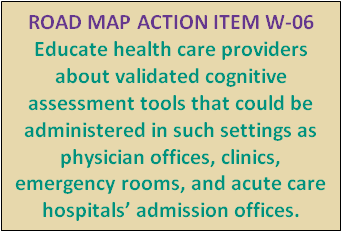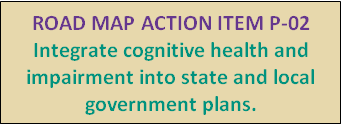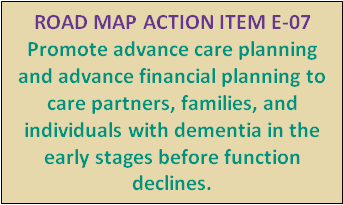| Claims for Brain Games Are Exaggerated, Scientists Say
 Marketing for computer- or mobile-based “brain games” often lure consumers with claims about long-term improvement in cognitive health. However, a scientific consensus panel recently found scant evidence to support these assertions. The panel expressed concern that playing brain games could divert people from engaging in behaviors for which there is stronger research on the benefit to general and cognitive health, such as physical activity. Marketing for computer- or mobile-based “brain games” often lure consumers with claims about long-term improvement in cognitive health. However, a scientific consensus panel recently found scant evidence to support these assertions. The panel expressed concern that playing brain games could divert people from engaging in behaviors for which there is stronger research on the benefit to general and cognitive health, such as physical activity.
To review the existing evidence for brain games, the Stanford Center on Longevity and the Berlin Max Planck Institute for Human Development convened more than 70 cognitive experts from neurology, psychology, and psychiatry for a comprehensive review of the evidence. The group found companies bolster these claims with references to small studies that are often just tangentially related. Also, the cited studies tended to demonstrate gains only in specific cognitive tasks, but did not provide evidence of changes in overall cognitive ability and functioning.
Based on this review, the panel overwhelmingly rejected marketing claims that brain games can reduce forgetfulness, improve everyday functioning, or help prevent Alzheimer’s disease. The scientific consensus statement concluded, “The promise of a magic bullet detracts from the best evidence to date, which is that cognitive health in old age reflects the long‐term effects of healthy, engaged lifestyles.”
Seniors with Dementia Not Talking to Their Doctor
 More than half of seniors with dementia have never talked to a doctor about memory issues, according to a new study published in Neurology. Researchers conducted dementia evaluations on 845 community-dwelling seniors aged 70 and older who are part of the Health and Retirement Survey. They found nearly 300 study participants met clinical criteria for dementia. Researchers then asked the spouses and children of these individuals if the person with dementia had ever seen a doctor for memory complaints or impaired thinking. Over half with the disease—55.2 percent—had never spoken to a physician about cognitive complaints. More than half of seniors with dementia have never talked to a doctor about memory issues, according to a new study published in Neurology. Researchers conducted dementia evaluations on 845 community-dwelling seniors aged 70 and older who are part of the Health and Retirement Survey. They found nearly 300 study participants met clinical criteria for dementia. Researchers then asked the spouses and children of these individuals if the person with dementia had ever seen a doctor for memory complaints or impaired thinking. Over half with the disease—55.2 percent—had never spoken to a physician about cognitive complaints.
 This study underscores the need for public health officials to promote early detection. Talking to a physician about difficulties in thinking and memory can lead to the early detection of Alzheimer’s disease and other dementias. Early diagnosis can greatly improve the quality of life for both those living with the disease and their caregivers and may reduce health care costs by delaying placement in nursing homes. This study underscores the need for public health officials to promote early detection. Talking to a physician about difficulties in thinking and memory can lead to the early detection of Alzheimer’s disease and other dementias. Early diagnosis can greatly improve the quality of life for both those living with the disease and their caregivers and may reduce health care costs by delaying placement in nursing homes.
The Public Health Road Map, jointly developed by the Centers for Disease Control and Prevention (CDC) and the Alzheimer’s Association, provides specific action items that public health officials can take, including supporting education and training for health care workers on recognizing the early signs of dementia (action item W-03) and educating health care providers about validated cognitive assessment tools (action item W-06).
Midlife Diabetes Linked to Later Memory Problems
 Midlife diabetes may raise the risk of cognitive issues later in life, according to new research. The study found that diabetes, prediabetes, and poorly-controlled diabetes all raised the risk of thinking and memory problems 20 years later. Midlife diabetes may raise the risk of cognitive issues later in life, according to new research. The study found that diabetes, prediabetes, and poorly-controlled diabetes all raised the risk of thinking and memory problems 20 years later.
The cohort study followed more than 13,000 black and white participants over a 20-year time period, with an average starting age of 57. Researchers tested participants’ memory and cognitive functioning three times over the course of the study as well as assessed for diabetes. They found that those with diabetes at the beginning of the study had a 19 percent greater decline in thinking and memory compared with those who did not have the disease.
 Similarly, those with prediabetes had greater cognitive decline than those without prediabetes. Even among those with diabetes, those with poorly-controlled diabetes experienced more cognitive issues than those whose diabetes was well-managed. Similarly, those with prediabetes had greater cognitive decline than those without prediabetes. Even among those with diabetes, those with poorly-controlled diabetes experienced more cognitive issues than those whose diabetes was well-managed.
This study adds to the body of evidence showing that preventing and controlling diabetes may help protect brain health in old age. By incorporating this message into existing public health campaigns on diabetes as well as relevant state or local government plans (such as diabetes prevention or coordinated chronic disease plans), the public health community can help promote healthy bodies and minds.
New Mortality Data Show Continued Burden of Alzheimer’s
 The number of deaths from Alzheimer’s disease has grown 69 percent since 2000, according to new mortality data released by the Centers for Disease Control and Prevention (CDC). In 2012, Alzheimer’s disease remained as the sixth leading cause of death in the United States, though the number of Alzheimer’s deaths is often underreported. The number of deaths from Alzheimer’s disease has grown 69 percent since 2000, according to new mortality data released by the Centers for Disease Control and Prevention (CDC). In 2012, Alzheimer’s disease remained as the sixth leading cause of death in the United States, though the number of Alzheimer’s deaths is often underreported.
Alzheimer’s disease is a likely contributor in many other leading causes of death. In addition to the well-known symptoms of increased confusion and disorientation, those with advanced Alzheimer’s may experience immobility, problems with swallowing, and malnutrition. All of these factors can complicate care and treatment and can contribute to death, particularly from pneumonia. It has been estimated that as many as 700,000 people died with Alzheimer’s in 2014, whether directly from the disease or as a potential contributing factor.
Resources Available on Healthy Aging, Financial Planning
Public health has a large role to play in promoting healthy aging, but it is not always easy to know the best way to do so. Two recently-developed, educator-led resources can help. Public health officials can download and present both programs to targeted audiences (such as at nursing homes or senior centers) or in conjunction with various community partners (such as religious institutions or banks).
 Brain Health as You Age: You Can Make A Difference! Brain Health as You Age: You Can Make A Difference!
Developed by the Administration for Community Living in partnership with the CDC and the National Institutes of Health (NIH), this program provides current evidence-based information to promote brain health among older adults and their caregivers. The program includes a PowerPoint presentation and educator guide covering topics such as the normal aging brain, threats to brain health, and healthy aging for your body and brain.
 Smart Money for Older Adults Smart Money for Older Adults
Developed by the Federal Deposit Insurance Corporation (FDIC) and the Consumer Financial Protection Bureau (CFPB), this program educates seniors on advanced financial planning and preventing elder financial abuse.  The program, available in both English and Spanish, includes a PowerPoint and educator guide. It provides information on planning for a secure financial future, making informed financial decisions, and identifying and reporting financial abuse. The program, available in both English and Spanish, includes a PowerPoint and educator guide. It provides information on planning for a secure financial future, making informed financial decisions, and identifying and reporting financial abuse.
The Alzheimer’s Public Health E-News is supported by Cooperative
Agreement #5U58DP002945-05 from the Centers for Disease Control and Prevention
(CDC). Its contents are solely the responsibility of the Alzheimer’s
Association and do not necessarily represent the official views of the CDC.
For subscription services or to view previous issues of Alzheimer’s Public Health News, please visit http://alz.org/publichealth/public-health-news.asp or contact John Shean (jshean@alz.org).
|